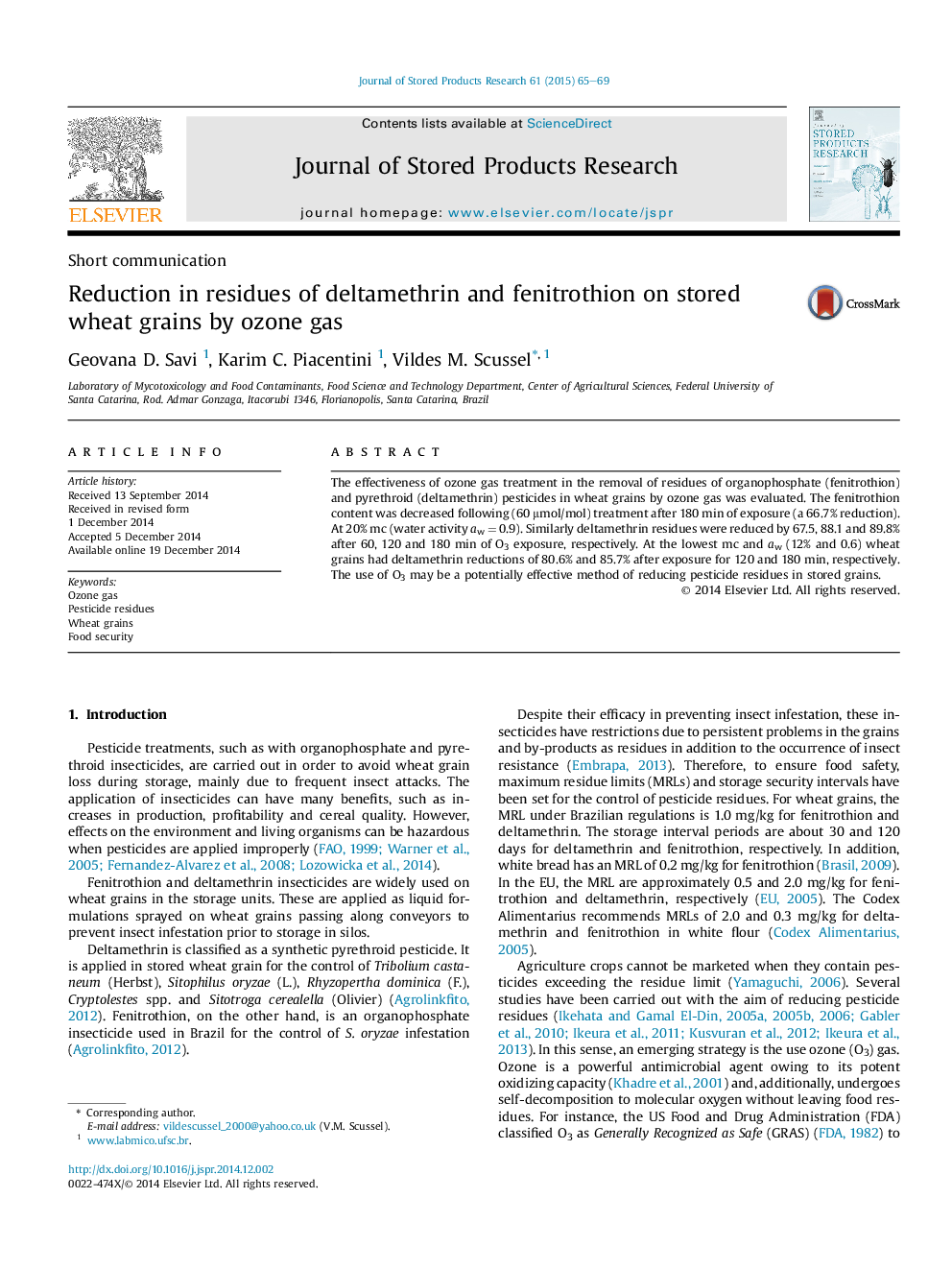| کد مقاله | کد نشریه | سال انتشار | مقاله انگلیسی | نسخه تمام متن |
|---|---|---|---|---|
| 4517001 | 1624927 | 2015 | 5 صفحه PDF | دانلود رایگان |

• Ozone treatment is effective for removal of deltamethrin residues.
• Increasing aw in the grains may enhance pesticides degradation by ozone.
• The increase of exposure time of ozone gas did not produce a statistically significant reduction in deltamethrin residues.
• The ozone gas is a potentially effective technology for removing contents of pesticides in wheat grains.
The effectiveness of ozone gas treatment in the removal of residues of organophosphate (fenitrothion) and pyrethroid (deltamethrin) pesticides in wheat grains by ozone gas was evaluated. The fenitrothion content was decreased following (60 μmol/mol) treatment after 180 min of exposure (a 66.7% reduction). At 20% mc (water activity aw = 0.9). Similarly deltamethrin residues were reduced by 67.5, 88.1 and 89.8% after 60, 120 and 180 min of O3 exposure, respectively. At the lowest mc and aw (12% and 0.6) wheat grains had deltamethrin reductions of 80.6% and 85.7% after exposure for 120 and 180 min, respectively. The use of O3 may be a potentially effective method of reducing pesticide residues in stored grains.
Journal: Journal of Stored Products Research - Volume 61, March 2015, Pages 65–69